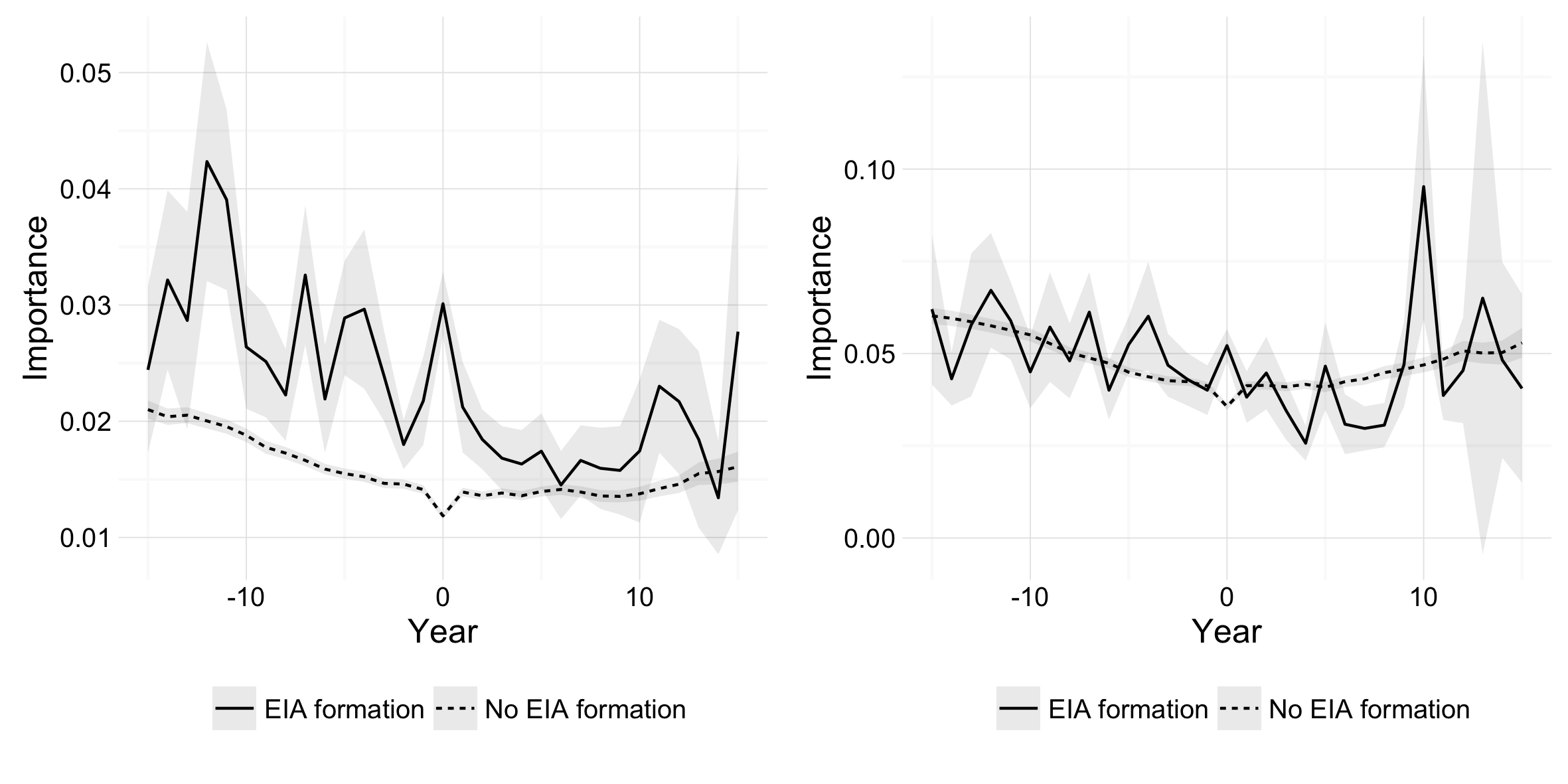The Ties that Bind: Geopolitical Motivations for Economic Integration Review of World Economics. https://doi.org/10.1007/s10290-022-00461-6, July 2022.

Evolution of the mean of Importance of bilateral relations of big (left) and small (b) countries in future agreement with an EIA partner country and non-partner countries around trade deal at t = 0.
Economic determinants of economic integration agreements have received ample attention in the economic literature. Political motivations for such agreements have been mostly studied as functions of domestic politics or in the context of conflict. In this paper the author suggests a different narrative. Economic integration may be used as an instrument of foreign policy, where political considerations influence the choice of contracting partners. He sketches a simple model that exhibits the proposed mechanism in which a big country chooses between alternatives for integration in terms of economic and political welfare gains, while a small country is indifferent between possible partners for integration. In the empirical part the author uses a novel dataset on political events to test the predictions of the model and finds evidence for the hypothesis that there is more to economic integration than “just trade”. Geopolitical considerations play a determining role in the choice of the contracting partner country and the depth of economic integration.
Links & Downloads
Earlier versions
Last updated on April 21, 2024. © Julian Hinz 1987–2024.